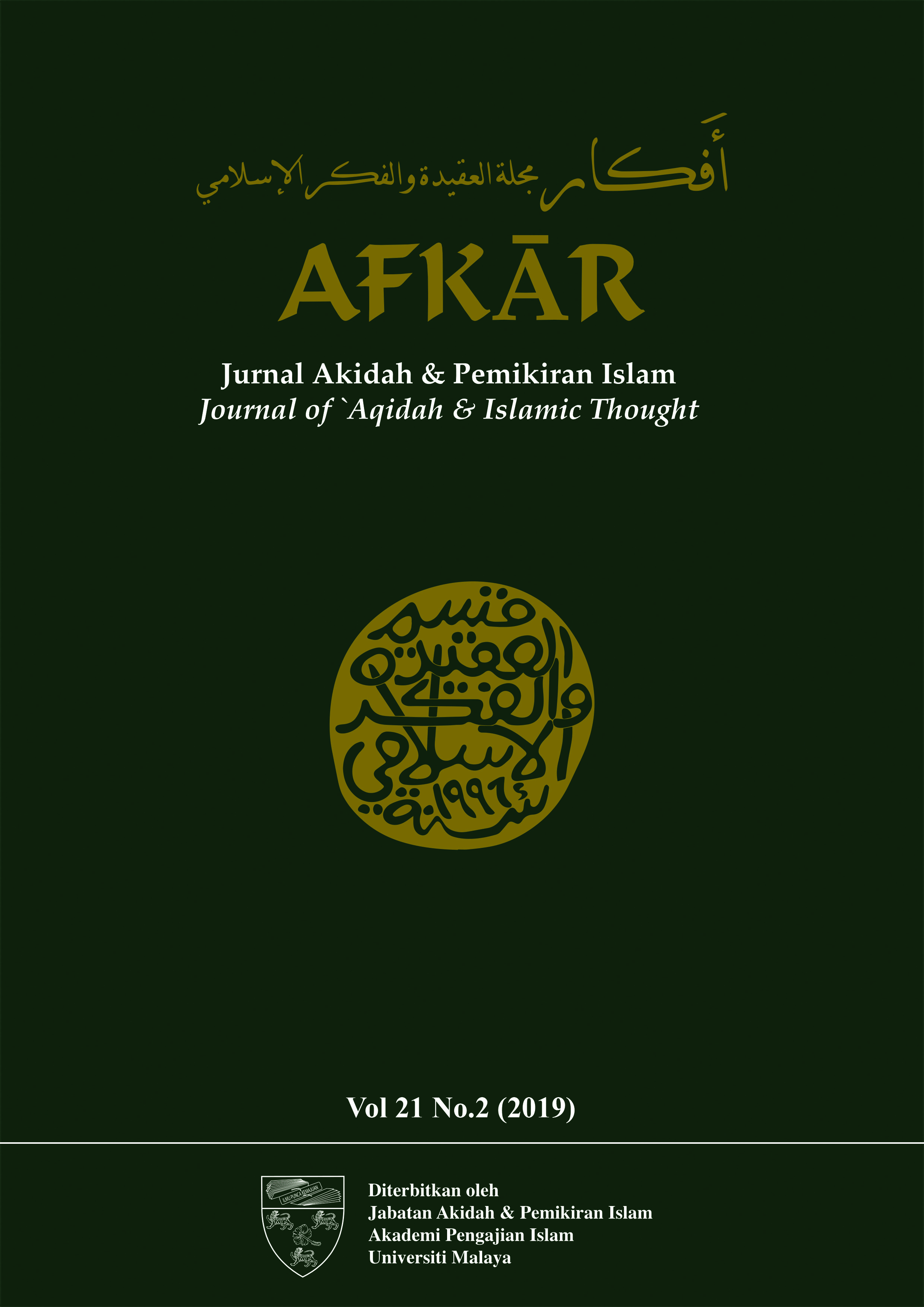Pemikiran Ṣadr al-Dīn al-Shīrāzī Tentang Wujud Ṣadr al-Dīn al-Shīrāzī’s Thought on Existence
Main Article Content
Abstract
Ṣadr al-Dīn al-Shīrāzī (1572-1640) or Mullā Ṣadrā was a later development Muslim philosopher from Persia. He was said to be the pioneer of a new thought in Islamic philosophy which followed the former Muslim philosophers such as Ibn Sīnā and Ibn Rushd. His thoughts are increasingly being studied by scholars of Islamic philosophy over the past few decades. This article aims to identify Ṣadr al-Dīn al-Shīrāzī’s thought with regards to his conception on existence. The article collects documents related to Ṣadr ad-Dīn al-Shīrāzī’s thought based on the document study method, then analyses it through textual analysis method. As a result, this article discovers that Ṣadr ad-Dīn al-Shīrāzī introduced the principle of primacy of existence or aṣālah al-wujūd in his philosophical system, which differs from his predecessor, Suhrawardī, that emphasizes on the primacy of quiddity or aṣālath al-māhiyyah. Ṣadr ad-Dīn al-Shīrāzī’s thought also has some effect to human substance -the soul, through his principle of substantial movement or al-ḥarakat al-jawhariyyah. These principles initiate a new interpretation in Islamic philosophy especially with regards to the dynamicity of creation of everything that exists.

